Oil price posts two-year highs - but how long can it last?
Brent rose above $59 a barrel this week, its best third-quarter showing since 2004

A free daily email with the biggest news stories of the day – and the best features from TheWeek.com
You are now subscribed
Your newsletter sign-up was successful
Oil price stability is calm before the storm
22 February
After a tumultuous week with peak-to-trough swings of close to 13 per cent, the oil price appears more stable today.
International benchmark Brent crude was up around 2.5 per cent this morning and was closing in on $34 a barrel, which, notes the Financial Times, indicates a "more stable footing". Last week, it swung as low as $32 and set a high in excess of $36 as the first indication of an agreement to limit supply gains was announced and seemed to gather important support.
The Week
Escape your echo chamber. Get the facts behind the news, plus analysis from multiple perspectives.

Sign up for The Week's Free Newsletters
From our morning news briefing to a weekly Good News Newsletter, get the best of The Week delivered directly to your inbox.
From our morning news briefing to a weekly Good News Newsletter, get the best of The Week delivered directly to your inbox.
The deal, nominally struck in the early part of the week, includes the two largest suppliers in the world, Russia and Saudi Arabia, the de facto leader of the powerful Opec cartel, and proposes holding supplies at January levels. However, this is contingent on support from other major producers, including the likes of Iran, which is just re-entering the international export market.
Doubts remain that Iran and its neighbour, Iraq, which is pumping at record levels, will not sign up, although this was somewhat alleviated by supportive comments from Iranian ministers amid rumours of a key concession to allow the country to return exports to pre-sanction levels before a freeze took hold.
More profound concerns are that such a deal will do little to cure the issue of persistent oversupply. January's global oil production total was among the largest ever – Russia is pumping at a post-Soviet-era high and Opec is also hitting numbers not witnessed for years – and most believe the deal merely confirms a ceiling to growth that was inevitable.
The hope, say analysts at Barclays, among others, is that the deal not only holds, but serves as a starting point for further incremental agreements – eventually meaning actually reductions in output. This, they say, is how production cuts have come about in the past.
A free daily email with the biggest news stories of the day – and the best features from TheWeek.com
Reuters notes there are new talks planned this week by ministers from Opec member Nigeria with counterparts in Saudi Arabia, as well as representatives from Qatar, the bloc's current chair.
As we enter a period of back-room diplomacy, the oil price is unlikely to rise substantially from its stubbornly low level, which is loss-inducing for much global production. There may yet be more volatility – but a definitive swing up or down will not come until a more concrete view on any final supply deal emerges, which could take weeks.
Oil price falls again after US stocks hit record high
19 February
Growing global concern about oversupply has caused oil prices to fall once again, reports Reuters.
A record build in US crude stocks has sent tremors throughout an already trembling market, causing oil futures to fall in Asian trade on Friday.
The news that US crude inventories rose by 2.1 million barrels last week, to a peak of 504.1 million, the third week of record highs in the past month, outweighed moves by oil producers including Saudi Arabia and Russia to cap oil output.
Analysts say that any deal to cap production is dependent on Iran - "but Iran has been clear, saying it wants to get back to its pre-sanctions (production) level," said Tony Nunan, the oil risk manager at Japan's Mitsubishi Corp in Tokyo.
"Everything is pointing to the end of this year [before there is an agreement] when Iran gets to 4 million barrels per day. By that time, the pain will be so great everybody will come to the table [to agree output caps]," Nunan added.
The development has stamped on recent tentative optimism. Oil prices had risen more than 14 per cent earlier this week, after Saudi Arabia and Russia, supported by other producers including Venezuela and Iraq, moved to freeze output at January's levels.
However, Adel al-Jubeir, Saudi Arabia's foreign minister, said Riyadh was still "not prepared" to cut production, dashing growing hopes that talks with Moscow about capping output would help reduce the glut.
Oil price 'to remain volatile' despite Iran support
18 February
First, the good news for oil bulls - a breakthrough supply deal between Russia and Saudi Arabia received surprising support from Iran yesterday, prompting a rally in the price.
Having hit a low of $32 a barrel on Tuesday, the international benchmark Brent crude rose above $34 overnight and continued to move towards $35 this morning after Bijan Zanganeh, the Iranian oil minister, said the country "backs any measures which help stabilise the market", referring to the agreement to freeze output at January levels.
The comments came at the end of a meeting with ministers from fellow Opec members Iraq, Qatar and Venezuela, the latter two of which are trying to build support for the deal to halt a downward spiral in the oil price that is battering budgets. Both have also agreed to hold production at last month's total – but the accord only stands if other powers, and notably Iran, join.
Helping the upward swing was a shock drop in oil reserves in the US. The US Energy Information Administration reported stockpiles fell by 3.3 million barrels last week, notes Reuters, compared to a consensus estimate for another build of 3.9 million barrels.
But all is not plain sailing. It is worth noting that oil remains at a painful low, well below the level needed for producer companies in many areas to make a profit from extraction, and few analysts believe the current rally marks a bottom for the market. Indeed, most predict a period of intense volatility lies ahead.
Not only is output running at as much as two million barrels a day above demand – and onshore stockpiles in areas such as the US remain very near record levels – but there is also considerable doubt that Russian-Saudi deal will succeed. Critically, Iran is almost certain to insist on at least being able to return production to pre-international sanction levels.
"Such a freeze will have little impact on the oil market as proposed, while there remains high uncertainty that it even materialises, in our view," said Goldman Sachs analysts in a client note. "As a result, our oil supply and demand estimates remain unchanged and we reiterate our view that oil prices will remain volatile."
Oil price: why traders turned sour on Saudi-Russia output deal
17 February
Oil made sizeable gains in the early part of Tuesday, after a landmark deal appeared to have been agreed to curb excessive global supply, but traders turned sharply negative later on.
Having gained more than six per cent at one point to above $35.50 a barrel, international benchmark Brent crude slipped back to a little above $32 by the end of its session in New York, representing a loss for the day of 1.2 per cent. This was despite Russia and Saudi Arabia, the largest producers in the world, agreeing to freeze output at January levels.
However, as the tentative deal remains contingent on other producers, most notably Iran, taking part, traders have effectively rejected it.
Iran has just emerged from international sanctions and last night, Mehdi Asali, its Opec envoy, told Reuters it would be "illogical" to expect it to, in effect, freeze production at pre-sanctions levels.
This might scuttle the chances of the deal being finalised – and some are unhappy with the extent of the action on supply in any case. Russia is pumping at a post-Soviet era high and Opec's production is similarly at its greatest for years, so current oversupply of one to two million barrels a day would simply be entrenched. Analysts had instead hoped for a significant cut.
"Any price spikes are going to be short-lived unless they take two to three million barrels off the market," Tariq Zahir, the managing member of Tyche Capital Advisors LLC, told the Wall Street Journal.
There is some hope the deal could be the start of something more substantial, however. Not only is it an important first step indicating that the largest producers are feeling the pain of low prices, but non-Iranian sources told Reuters the desire to get a deal could be so strong that concessions might be made to allow Iran to return to reasonable production levels.
More talks are taking place today with the oil ministers of Opec members Venezuela, Iran and Iraq – and the wrangling is likely to go on for some time yet. As such, the general view is that, until a clearer picture emerges or a more definitive production cut is agreed, the oil price will stay volatile and could even slump to a new low.
Goldman Sachs issued a note on Monday branding the market "directionless" and predicting price swings between $40 and $20, or even lower if momentum builds as a result of the big short position many investors have adopted.
Oil price: Saudi Arabia and Russia reach supply deal – but will it be enough?
16 February
The oil price pared gains made earlier in the week in a volatile start to Tuesday trading in Europe after a deal was finally struck to contain rampant supply.
International benchmark Brent crude had surged more than five per cent to above $35 a barrel on Monday, as news broke that a meeting between the oil ministers of several powers would take place in Qatar, which currently holds the rotating presidency of the Opec cartel.
Importantly, both Russia and Saudi Arabia, the de facto Opec leader, were to be represented.
However, when the outcome of the meeting emerged, prices slumped back below $34. Four producers – Russia, Saudi Arabia, Qatar and Venezuela – have agreed to stop increasing supply by holding output at January levels, CNBC reports.
In some respects, this is positive. Russia and Opec, driven by Saudi Arabia, have been ramping up supply in the past 18 months - and especially in the last two - as they fight to secure market share and force out rivals. A pledge to freeze production will help calm the waters and allow rising demand to begin to rebalance the market.
However, January saw Russia and Opec's exports hit multi-year highs so the freeze, even if successful, would keep supply at a very high level.
Added to that, the deal is conditional upon other producers agreeing - meaning in particular that the likes of Iran, which is gearing up its oil output again after emerging from international sanctions, and Iraq would have to be on board.
Venezuela's minister, Eulogio Del Pino, told the Financial Times he is to discuss the proposal with his Iranian and Iraqi counterparts on Wednesday. His Qatari counterpart, Ali al-Naimi, branded the initial meeting and deal as a "success" and said he hoped other producers would agree to the terms.
As time went on, prices started to rally and at 10am, were back above $34. This could suggest that while the supply freeze is not the sort of action some had hoped for, it is at least some movement on supply and could help establish a bottom for the market.
If other producers scupper the plans, of course, all bets would be off.
"It's really the first supply management decision taken since November 2014, so even though there will be some that will try to discount it and say it's not a cut, it's a change. It is a big change in policy," Petromatrix strategist Olivier Jakob told Reuters. "It's quite typical to have some volatility when (headlines) come out, but I think over the medium term, people will start to review their positions."
-
 The ‘ravenous’ demand for Cornish minerals
The ‘ravenous’ demand for Cornish mineralsUnder the Radar Growing need for critical minerals to power tech has intensified ‘appetite’ for lithium, which could be a ‘huge boon’ for local economy
-
 Why are election experts taking Trump’s midterm threats seriously?
Why are election experts taking Trump’s midterm threats seriously?IN THE SPOTLIGHT As the president muses about polling place deployments and a centralized electoral system aimed at one-party control, lawmakers are taking this administration at its word
-
 ‘Restaurateurs have become millionaires’
‘Restaurateurs have become millionaires’Instant Opinion Opinion, comment and editorials of the day
-
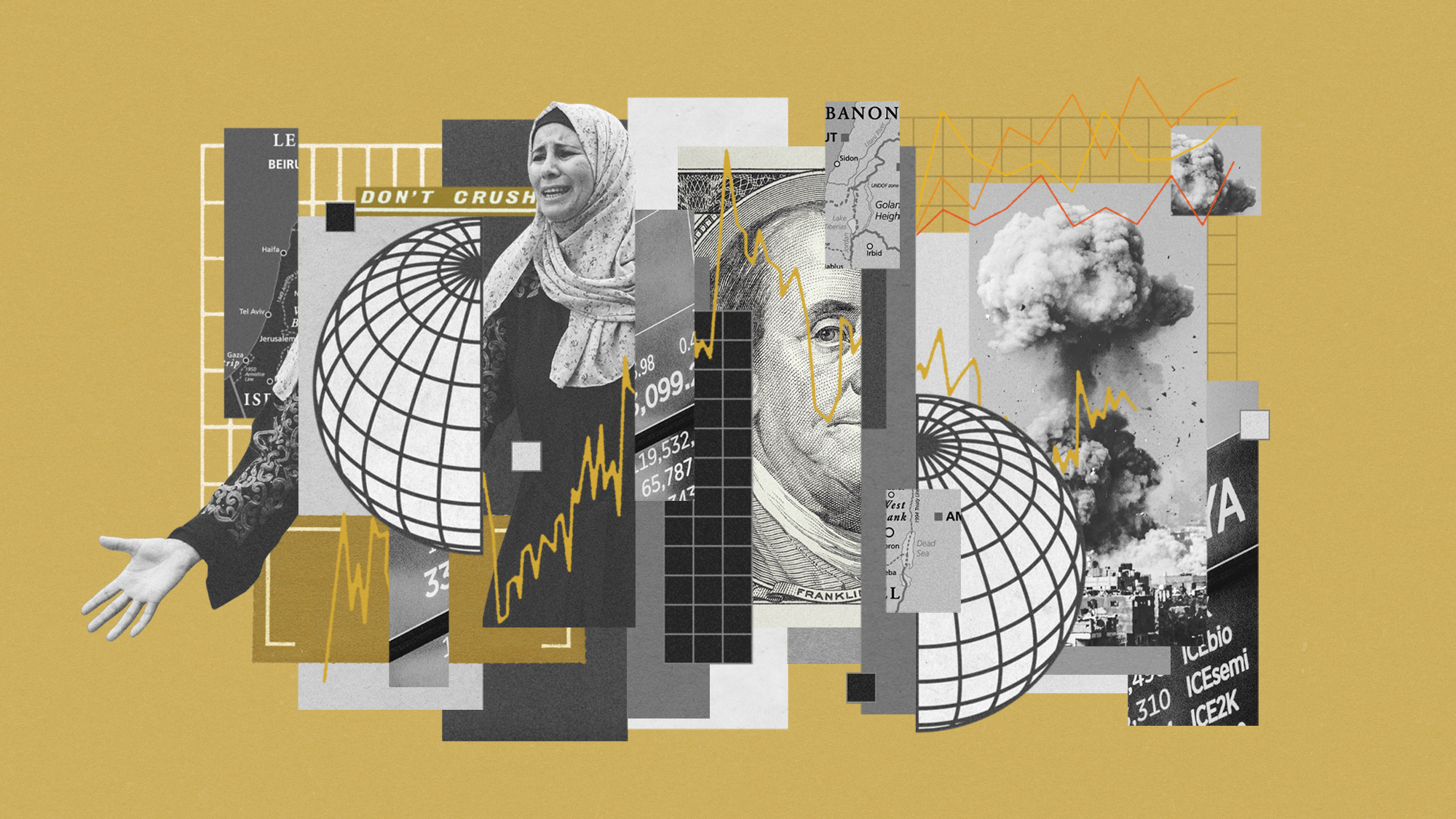 How might the Israel-Hamas war affect the global economy?
How might the Israel-Hamas war affect the global economy?Today's Big Question Regional escalation could send oil prices and inflation sky-high, sparking a worldwide recession
-
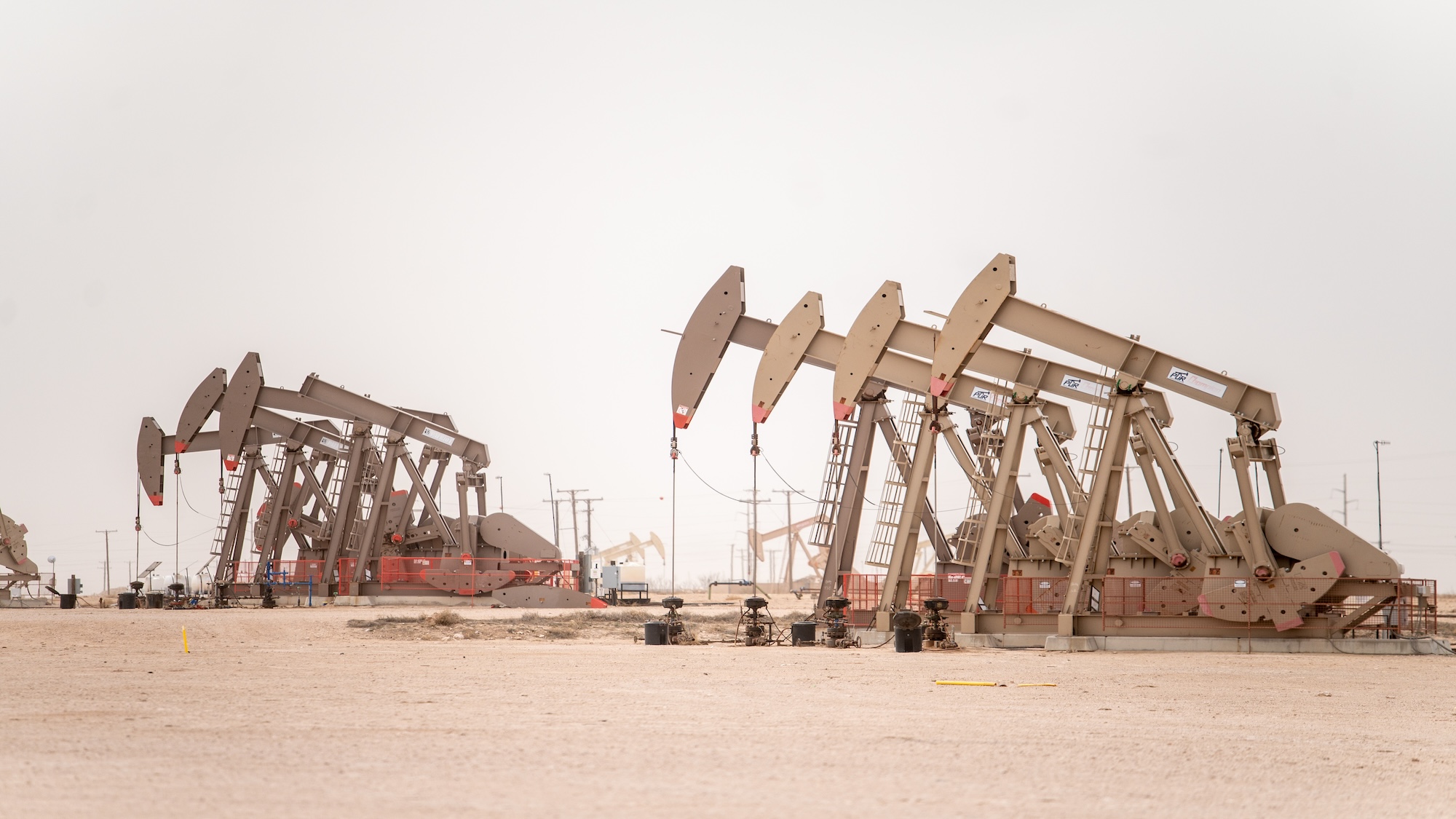 Recent mega-mergers could signal a turning point for the US oil industry
Recent mega-mergers could signal a turning point for the US oil industryTalking Point Both Chevron and Exxon have recently spent billions to acquire smaller oil companies
-
 Has Saudi Arabia lost control of oil prices?
Has Saudi Arabia lost control of oil prices?Today's Big Question Kingdom goes it alone to cut production, risking tension with US and reigniting cooling inflation in Europe
-
 US angered by Opec+ oil cut
US angered by Opec+ oil cutSpeed Read Energy prices to rise further as producers slash supply by two million barrels a day
-
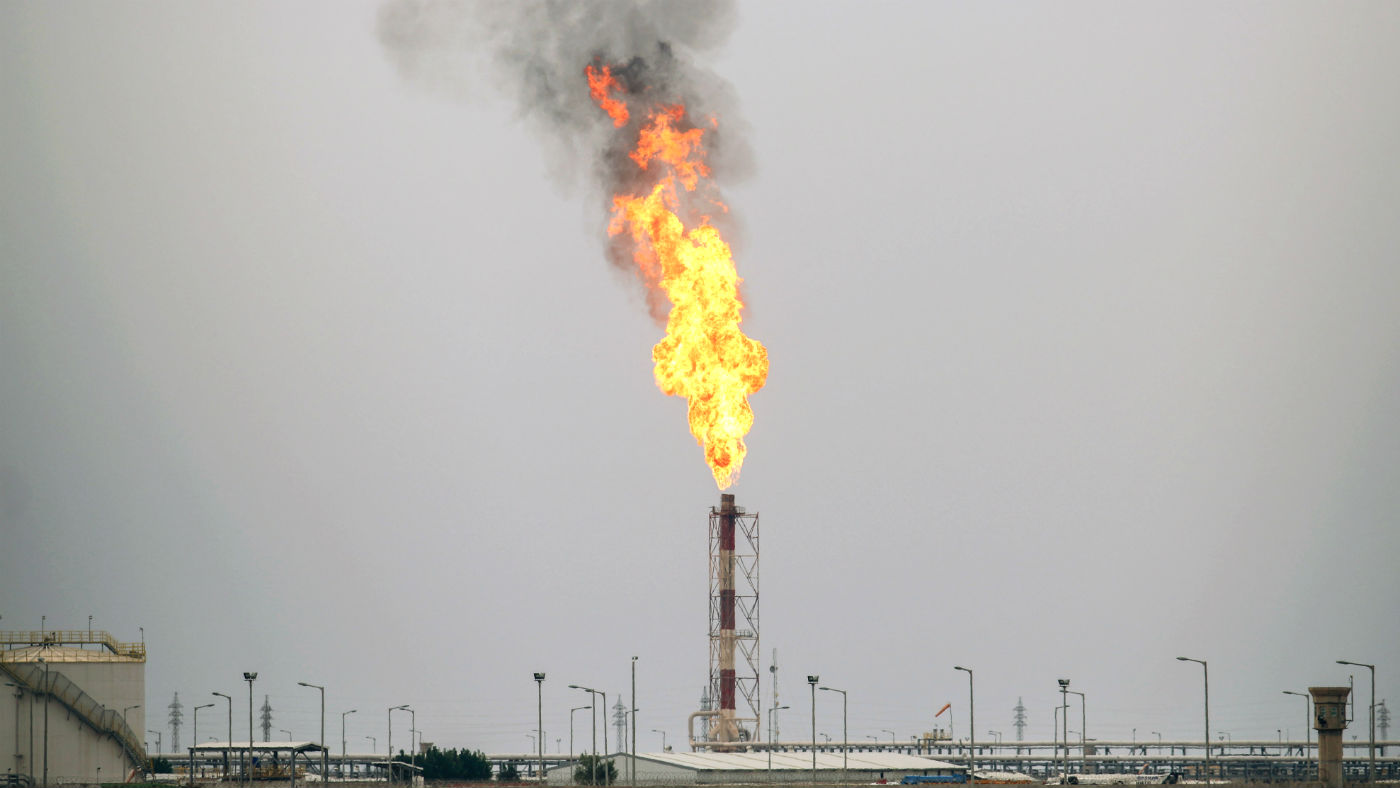 Global oil demand forecast lowered for 2020 and 2021
Global oil demand forecast lowered for 2020 and 2021Speed Read IEA report says jet fuel demand remains the major source of weakness
-
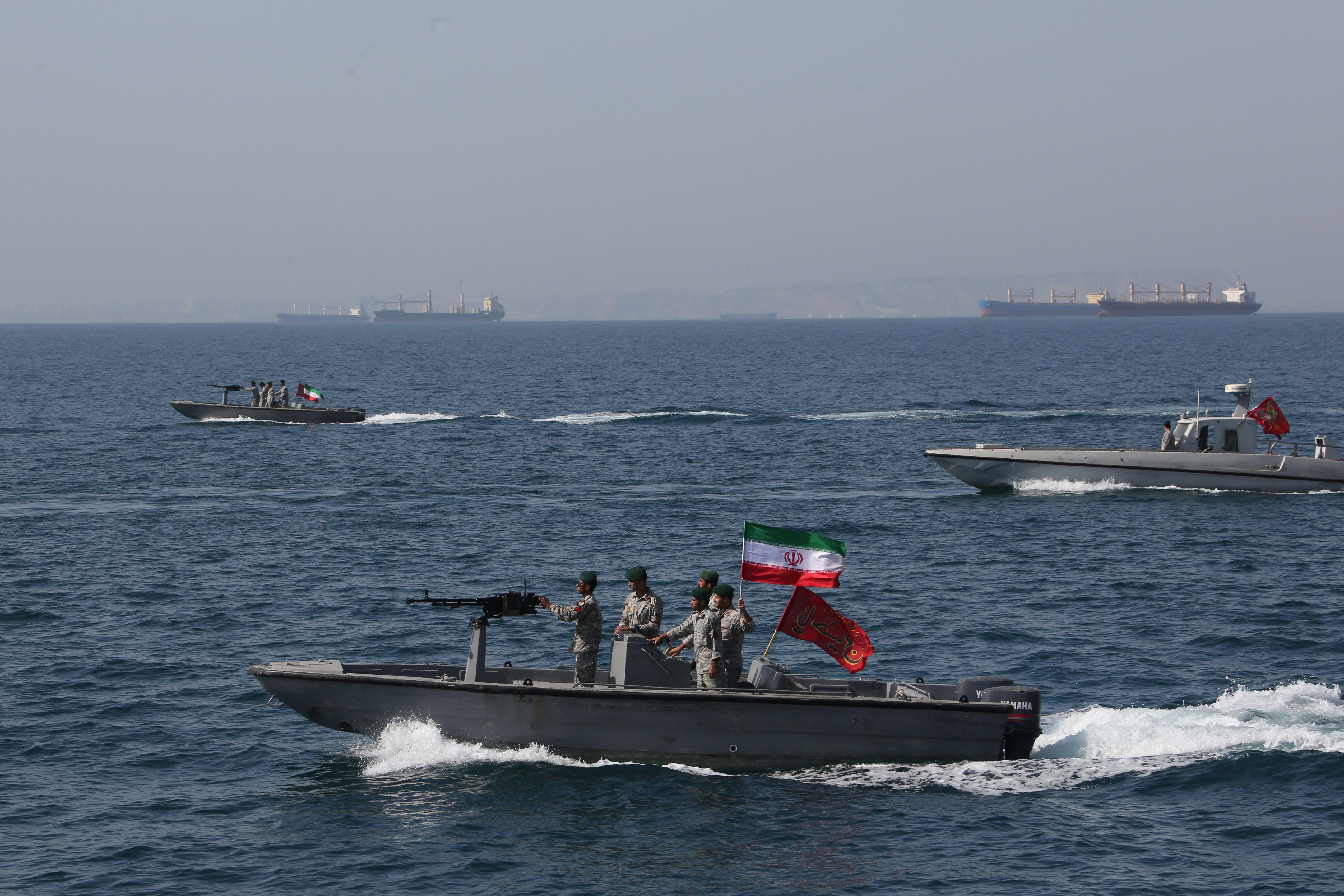 Are US-Iran tensions flaring again?
Are US-Iran tensions flaring again?In Depth Trump threatens military action over Twitter
-
 Can a deal be struck to raise oil prices?
Can a deal be struck to raise oil prices?In Depth Opec+ will convene today over video link in a bid to boost crude
-
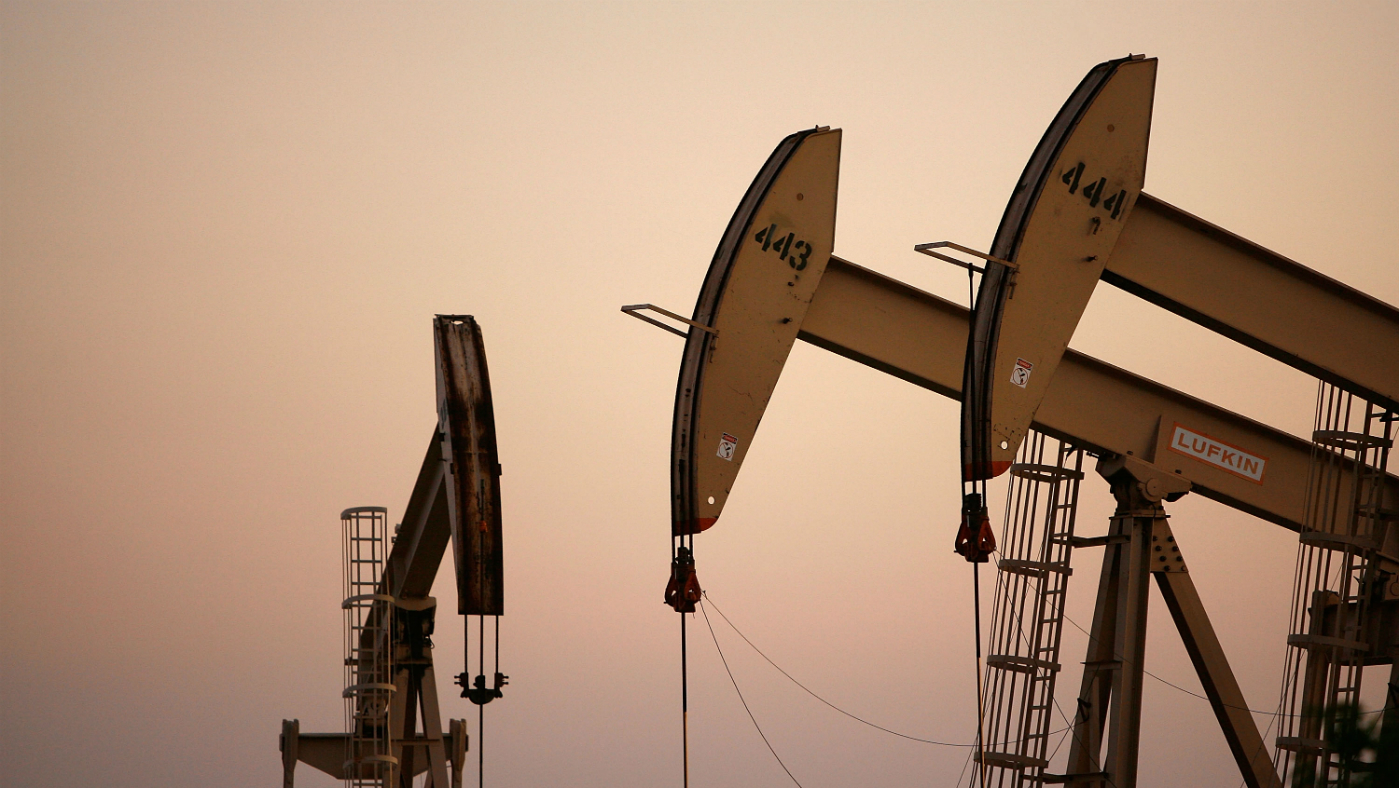 What do negative oil prices mean?
What do negative oil prices mean?In Depth Perfect storm of oversupply and storage shortages sees producers paying to get rid of US crude